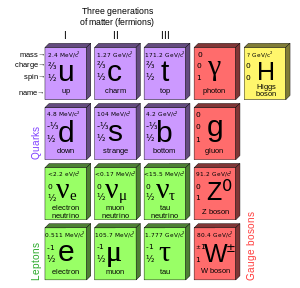The study of the component parts of nature ends up into what we now term "elementary particle physics". Our experimental studies up to now and the mathematical theories that fit the data are encapsulated in the Standard Model.
This model has a basic assumption/axiom that elementary particles that are not composite exist and on these and their interactions the whole edifice is built up.
Here are the particles that our experimental exploration up to now finds as elementary

Of course somebody aware of the history of science from Demokritos' time 2500 years ago to the present knows that science calls elementary the level it has explored which does not show compositeness with the instruments and methods of the time. We have very sophisticated instruments and believe we are exploring in depth what has not been possible the past centuries. Still, to avoid hubris, I would qualify the statement with :these particles are elementary as far as we know now.

